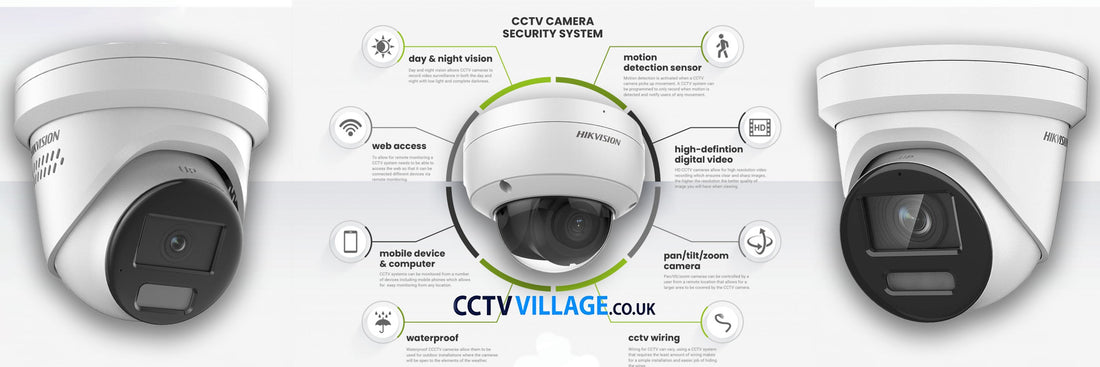In today's rapidly evolving security landscape, Closed-Circuit Television (CCTV) systems have become indispensable tools for safeguarding property, assets, and people. Whether you're a homeowner, a business owner, or a public institution, the quality of your CCTV system directly impacts its effectiveness in deterring crime, monitoring activities, and providing valuable evidence when incidents occur. To ensure your CCTV system operates optimally, here's a comprehensive guide to guaranteeing its quality:

Choose the Right Equipment: Selecting high-quality cameras, recording devices, and other components is crucial for a reliable CCTV system. Opt for cameras with appropriate resolution, lens type, and features such as night vision and motion detection, based on your requirements. Invest in reliable DVRs (Digital Video Recorders) or NVRs (Network Video Recorders) with ample storage capacity and remote access capabilities for convenient monitoring.
Consider Placement and Coverage: Strategically position cameras to maximize coverage while minimizing blind spots. Conduct a thorough assessment of your property or premises to identify critical areas requiring surveillance. Ensure cameras are installed at optimal heights and angles to capture clear footage of faces, license plates, and other pertinent details.
Ensure Proper Installation: Proper installation is paramount to the performance of your CCTV system. Hire qualified technicians or enlist the services of reputable security companies to handle installation tasks. Ensure cameras are securely mounted, cables are concealed, and connections are properly configured to prevent tampering or signal interference.
Regular Maintenance and Inspection: Schedule routine maintenance and inspection to keep your CCTV system in top condition. Check cameras for physical damage, clean lenses to maintain clarity, and inspect cables and connections for signs of wear or corrosion. Verify that recording devices are functioning correctly and perform software updates as necessary to address security vulnerabilities and optimize performance.
Test Performance and Functionality: Regularly test the performance and functionality of your CCTV system to identify any issues or deficiencies. Conduct periodic camera tests to ensure proper alignment and focus, review recorded footage to confirm clarity and coverage, and simulate real-world scenarios to assess response times and accuracy.
Implement Security Measures: Strengthen the security of your CCTV system to prevent unauthorized access and tampering. Change default passwords on recording devices and cameras, restrict physical access to equipment, and encrypt data transmissions to safeguard against cyber threats. Implement user authentication measures and establish access controls to limit system privileges and protect sensitive footage.
Training and Education: Provide training and education to personnel responsible for operating and managing the CCTV system. Ensure staff understand how to navigate monitoring interfaces, retrieve footage, and respond to security incidents effectively. Educate users on best practices for maintaining privacy, adhering to legal regulations, and preserving evidentiary integrity when handling recorded footage.
Stay Informed and Adapt: Stay informed about advancements in CCTV technology, emerging threats, and regulatory changes impacting surveillance practices. Continuously evaluate the effectiveness of your CCTV system and be prepared to adapt and upgrade components or protocols to address evolving security challenges and maintain compliance with industry standards.
Compliance and Legal Considerations: Familiarize yourself with local regulations, privacy laws, and industry standards governing the use of CCTV systems. Ensure your deployment complies with applicable laws regarding video surveillance, data retention, and privacy rights. Obtain necessary permits or permissions, and prominently display signage to notify individuals of surveillance activities in compliance with legal requirements.

By following these guidelines and best practices, you can ensure the quality and effectiveness of your CCTV system in enhancing security, protecting assets, and promoting safety within your premises. A well-designed and properly maintained CCTV infrastructure not only serves as a deterrent to potential threats but also provides invaluable insights and evidence to support incident response and investigations.

